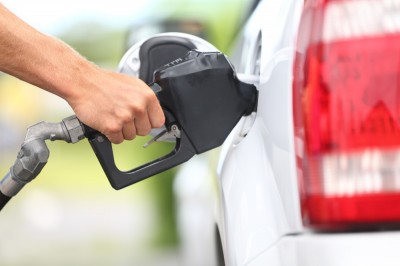Is Diesel Fuel Really Better than Gas for the Planet?
Despite the bad rep that diesel fuel has gotten for being heavier and oilier than gasoline and the fact that it emits nitrogen compounds and particulates, it actually emits less carbon monoxide, hydrocarbons and carbon dioxide than gas. Here at Rick Hendrick Collision Chevrolet Norfolk , we work on diesel vehicles all the time, so here are the hard facts as we analyze the ongoing debate--is diesel fuel more planet-friendly than gasoline?
According to experts, direct-injection gasoline engines have an emission rate 10 times greater than modern diesel engines. Today's diesel contains significantly less sulfur than it used to, so it emits much less soot and new diesel cars have emission-control systems that treat exhaust with a toxicity-reducing urea-based solution.
Named after German engineer Rudolf Diesel, diesel fuel result has much greater energy density than gasoline, which is why diesel cars get up to 40 percent more miles per gallon gas-run vehicles.
Over the past several decades, researchers have improved diesel fuel’s environmental friendliness by making the fuel cleaner and enhancing engine performance with new direct, computer-controlled injection devices.
Experts say diesel engines are better for the environment, including a simpler, less expensive refining process for diesel fuel. Increasing the use of diesel fuel offsets the need for more gasoline, which would reduce the impact of greenhouse gasses emitted in the gas refining process.
Also, diesel engines can easily be converted to run on biofuels and don't use spark plugs, starting instead with a compression ignition system instead of a fuel-injection system. Experts say this difference can increase diesel’s efficiency over conventional engines by as much as 30 percent.
Diesel produces more energy per volume and gives drivers higher mileage per gallon than gasoline, making it more cost-effective. Also, gas engines burn fuel at a higher rate, thereby adding more waste to the environment as a result.
 On the other hand, according to the Union of Concerned Scientists , producing a gallon of the new, low-sulfur diesel requires even more crude oil than the old diesel did. Plus, diesel engines are more complicated than gas engines and require more energy and materials to make.
On the other hand, according to the Union of Concerned Scientists , producing a gallon of the new, low-sulfur diesel requires even more crude oil than the old diesel did. Plus, diesel engines are more complicated than gas engines and require more energy and materials to make.
But, the ongoing development of biodiesel, which can drastically reduce a diesel vehicle's tailpipe emissions and can be made from domestic crops like soybeans and canola, is a game-changer.
Diesel fuel is safer for workers and produces fewer greenhouse gasses, as it produces minimal amounts of carbon monoxide. Generators that use diesel fuel are cleaner and safer to use in small spaces, like mines and other work environments, according to experts. Also, the environmental toll of refining gas is reduced to the degree that diesel fuel can offset the need for more gasoline.
We truly care about the air quality here in Norfolk , VA especially, so that's why we're always happy to share important information like this. As new fuels are developed and as the older ones are improved over time, hopefully Mother Earth and all of its inhabitants will benefit in the long run.
We strive to bring you relative content from Rick Hendrick Collision Chevrolet Norfolk in Norfolk , VA .
Sources: Auto.howstuffworks.com, slate.com, Newsmax.com






 On the other hand, according to the Union of Concerned Scientists , producing a gallon of the new, low-sulfur diesel requires even more crude oil than the old diesel did. Plus, diesel engines are more complicated than gas engines and require more energy and materials to make.
On the other hand, according to the Union of Concerned Scientists , producing a gallon of the new, low-sulfur diesel requires even more crude oil than the old diesel did. Plus, diesel engines are more complicated than gas engines and require more energy and materials to make.
Social